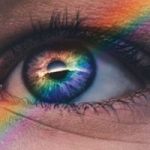 University of Brighton Centre for Transforming Sexuality and Gender in conjunction with feminist scholars from University College Dublin and Maynooth University
University of Brighton Centre for Transforming Sexuality and Gender in conjunction with feminist scholars from University College Dublin and Maynooth University
Venue: University of Brighton, UK
Time: 15-16 March 2019
Proposals by: 17th December 2018
The organisers of this two-day international and interdisciplinary conference welcome proposals from academics, scholars, students, activists, documentary and film-makers, writers and artists. The Lesbian Lives Conference is not just the world’s only annual academic conference in Lesbian Studies, it is a large international event that draws speakers and participants from all continents and hosts the best-known as well as emerging scholars in the field. In the past we have hosted Emma Donoghue, Jackie Kay, Joan Nestle, Sarah Schulman, Cherry Smyth, Del La Grace Volcano, Sarah Waters, Campbell X and academics such as Sara Ahmed, Terry Castle, Laura Doan, Lisa Downing, Lillian Faderman, Sarah Franklin, Claire Hemmings, Alison Hennegan, Sally R. Munt, Helena Whitbread, Bonnie Zimmerman among many others.
Moving beyond the notion of the politics of visibility as meaning only the politics of being ‚out‘ or being about erasure from cultural representation, the conference seeks to further probe what the politics of (in)visibility means to the LGBTQ community and individuals today. With celebrity culture and new media is visibility still a burning issue? Although visibility has increased, there are still media representations drawing predominantly on limiting stereotypes; lesbians, bisexual women and trans folks continue to be marginalised; yet visual activism and expression; from painting, photography, and documentary making to romcoms, comics, YouTube serials, and slasher fiction are at the heart of LBTQ culture.
The conference also would like to invite delegates to think about the politics of (In) visibility beyond visual culture and media representations, to include broader notions of public life and spaces. Gay culture may be increasingly visible in some metropolitan areas but lesbian spaces and places continue to be invisible. Similarly, Pride may be considered a moment of public visibility for the whole of the LGBTQ spectrum, but also in this case visibility is shaped by commercial interests and this again marginalises LBT and other non normative perspectives and experiences. Beyond these particular examples it is also important to consider intersectionality in relation to societal aspects of power that potentially render identities either or both in- and hyper visible.
Proposals are welcomed on (though are by no means limited to) the following:
* The relation of queer to lesbian visibility
* Visual activism
* Revisiting debates about LGBTQ visibility and its discontent
* (In)visibility and intersectionality
* (Bi) invisibility in LGBT communities
* Visibility in mainstream media
* Fake news and tablodisation of sexual identities
* Social media and visibility
* Lesbian YouTube culture
* Sexuality and Instagram
* Dating apps
* Film and screen studies
* Comics
* Photography
* LGBTQ domestic photography and home movies
* Lesbians in the archives
* The visual imprint of subcultures
* The lesbian lens
* The lesbian gaze
* LBTQ looks
* Youth and (in)visibility
* Visibility and social class / disability/ race/gender
* Visibility and invisibility of LGBT in museums
The conference organisers welcome proposals for (A) individual papers, (B) sessions, (C) round table discussions, (D) workshops and (E) visual presentations. We encourage submissions across all genres, both fact and fiction which align to the conference theme, and which have been produced between 2015-2018.
Lesbian Lives aims to build bridges across disciplines and explore less traditional forms of critical engagement with the politics of (in)visibility. In 2019, this underlying ethos of inclusiveness and dialogue will materialize in a fundraiser exhibition. Under the remit of „The Lesbian Lens“, we invite artists to digitally submit visual work: drawing, painting, photography and video. The exhibition opening will take place on the 15th of March and it will close a week after.
For papers, panels or workshops, please submit proposals of no more than 300 words to: sexgencentre@brighton.ac.uk clearly the information required as per the guidelines below, by the 17th December 2018. For submissions to the exhibition, please send your work to: J.Keane@brighton.ac.uk
If your proposal is selected you may be directed to a formal submission through our contributions and registrations site.
The Lesbian Lives Conference is open to all genders and any political and sexual orientations. There is an ethos of welcome and accessibility. The organisers particularly want to extend a welcome to bi and trans communities.
The organisers look forward to welcoming you to the conference and to hearing the exciting papers, participating in the enlivening workshops, watching the phenomenal films and engaging in a process of learning and growth.
For regular conference updates visit: https://www.facebook.com/Lesbian-Lives-Conference-2019-316502112413277/
Source: qstudy-l-request@mailman.rice.edu
